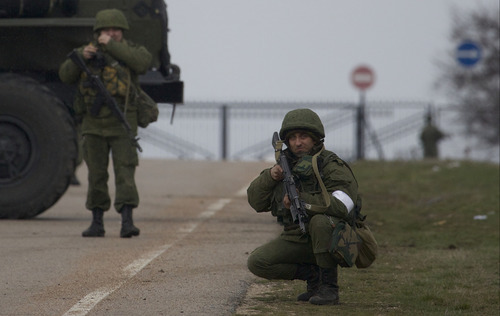
By: Shahab Moghadam
On Friday, Russian tanks roared into Ukraine’s Crimean Peninsula, turning domestic turmoil in the former Soviet republic into a full-fledged international crisis. U.S. President Barack Obama promptly declared that Russia’s invasion of Ukraine would be met with “consequences” but as of Friday evening, it remained unclear exactly what, if anything, the United States was prepared to do to back its threat with actions, especially as U.S. officials seek to collaborate with Russia on issues of concern elsewhere in the world, such as Syria’s civil war and Iran’s nuclear program.
In Kiev, little was heard from the interim government which had replaced the Pro-Russian regime of Viktor Yanukovych, but on the ground in Crimea, there seemed to be little resistance to the Russian advances, which analysts attribute to Crimea’s cultural and historical ties to Moscow. Indeed, early Friday evening, U.S. House Intelligence Committee Chairman Mike Rogers released a statement claiming that Russia had gained control of the entire Crimean Peninsula and that its forces were actively patrolling airports and other public facilities in the region. American students, which serve as TPS’ main audience, may be affected by this development in a number of ways, but few seem to be as important to their futures as the fact that a lack of American response to this event would signal a continuation of what many analysts the world over claim is the decline of American influence abroad as its military size is slashed and it faces increasing hostility among longtime allies the world over. More immediately, an American move which Moscow sees as threatening may damage the collaboration between the two nations on issues ranging from Syria’s civil war and Iran’s nuclear program to bilateral trade relations and European political stability.
It remains to be seen what becomes of Friday’s historic events, but it is something worth watching if only to consider its implications to the United States and its most precious resource, its youth.
